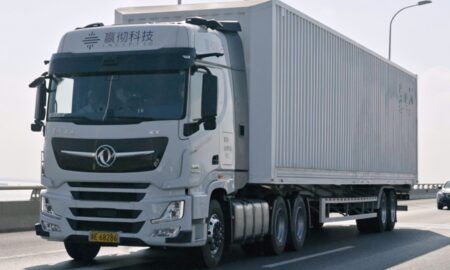The German Research Center for Artificial Intelligence (DFKI) and the country’s inspection and certification organization, TÜV SÜD, are launching a joint project to certify the artificial intelligence (AI) systems used in autonomous driving.
AI systems are becoming increasingly prevalent in the development of autonomous vehicles (AVs), helping them to safely master the enormous number of potential traffic situations that may occur, which is estimated at 100 million for each fully automated driving function.
Such systems do not react in a deterministic manner, and are thus not exactly predictable; instead, they learn from traffic situations in a process known as deep learning, and draw their own conclusions to deliver the correct reaction.
To ensure their decisions are always favorable to the safety of the traffic around them, TÜV SÜD plans to validate and certify the underlying algorithms, creating a certificate, or ‘driving license’, for the software that confirms it is safe to use on the road.
The TÜV-DFKI researchers will explore the learning behaviors of AI systems with the aim of being able to control the systems’ reactions. The main objective is to develop an open platform, known as ‘Genesis’, for OEMs, suppliers and technology companies. The platform will be able to validate AI modules and thus provide the basis for certifications. The aim is for users of the new Genesis platform to upload their data and modules for testing in future. Systems that pass will be awarded the appropriate TÜV SÜD certificate for functional safety.
AI systems use the available data to draw their own conclusions and successively learn from every time they encounter traffic situations. In this respect, they are similar to learner drivers.
The project’s objective is to be able to evaluate the AI system’s learning progress in a process similar to the theory examination of a driving test. However, a practical test is also essential before AVs can get the green light for road use. The research team will also explore the process by which AI systems learn, and data collected from virtual traffic situations will be used to monitor and correct the algorithms’ learning process.
“We are delighted to be working with the DFKI on making tomorrow’s driving safer, and embracing the challenges presented by artificial intelligence,” said Dr Houssem Abdellatif, global head of autonomous driving at TÜV SÜD.
“As yet we know very little about exactly how AI systems learn, so this is ground-breaking work. The deep learning method has shown surprisingly good results in practice, yet nobody knows how the process actually works.”




